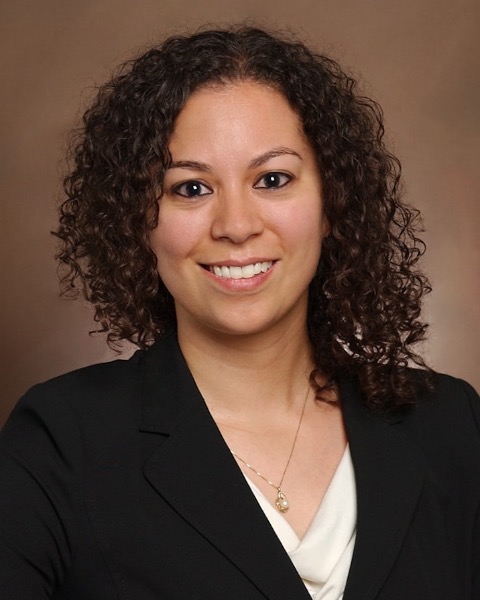Health Equity/Social Determinants of Health
Health Equity/Social Determinants of Health 7
674 - It Takes a Village: Reducing Racial/Ethnic Disparities and Barriers to Mental Health Screening Among Mothers of NICU Patients Through a Novel Smartphone Application
Sunday, April 30, 2023
3:30 PM - 6:00 PM ET
Poster Number: 674
Publication Number: 674.318
Publication Number: 674.318
Danielle N. Gonzales, Baylor College of Medicine, Pearland, TX, United States; Ann Blake, Baylor College of Medicine, Austin, TX, United States; Gal Barbut, Golisano Children's Hospital at The University of Rochester Medical Center, Rochester, NY, United States; Karen E.. Johnson, Baylor College of Medicine, Houston, TX, United States; Charleta Guillory, Baylor College of Medicine, Houston, TX, United States; Lisa M. Noll, Baylor College of Medicine, Houston, TX, United States

Danielle N. Gonzales, MD (she/her/hers)
Neonatology Fellow
Baylor College of Medicine
Pearland, Texas, United States
Presenting Author(s)
Background: Perinatal mood and anxiety disorders(PMAD) are a well-documented complication of the perinatal period. Non-Hispanic black(NHB) and Hispanic women are more likely to have postpartum depressive symptoms. NHB women are more likely to have preterm babies requiring NICU care, increasing the risk of PMAD. Furthermore, NHB women are more likely to die of pregnancy related complications, of which mental health is a contributor. Mothers in the NICU encounter many barriers to receiving appropriate screening and resources. Hispanic and NHB groups are more likely to rely on their phones as their primary means of internet access.
Objective:
This study investigated whether a smartphone application(app) was an accessible way to offer self-directed screening and referral for mental health services, and if an app was effective in reducing barriers that result in health disparities.
Design/Methods:
The NICU Village app was made available at Texas Children’s Hospital NICUs in April 2022. Mothers anonymously downloaded the app, which contains validated screens for postpartum depression(Edinburgh Postnatal Depression Scale/EPDS), anxiety(General Anxiety Disorder-7/GAD), and resources (hospital-wide and online). Demographic data, EPDS/GAD7 scores, and app navigation data was collected.
Results:
Over the study period (4/25/22-11/25/22), 213 people downloaded the NICU Village app. Of the app users, 57% self-identified as being from an underrepresented minority (URM) group (black/African American, Hispanic, Native American), 53% were low-income (household income less than $50,000/year), 56% had Medicaid. Of those who scored high on the EPDS (11 or more or endorsing self-harm), 64% were URM, 68% low-income and 77% had Medicaid. 75% of those who scored high on the EPDS and 60% of those who scored high on the GAD7 (10 or more) accessed resources. Of those who sought out resources, 77% were URM, 60% low-income, and 68% had Medicaid.
Conclusion(s):
Racial/ethnic disparities exist regarding PMAD, which are intertwined with disparities in social determinants of health. Preliminary analysis shows that the NICU Village app has been widely used by women from URM groups, have Medicaid and are low-income. We conclude that women from these groups are likely to use the app to access PMAD resources, especially in settings like the NICU where there are no standard screening procedures for PMAD. The app provides resources that are easily accessible to mothers, and its anonymity reduces stigma in mental health screening and seeking care. This app reduces barriers in access to care and is an effective way to address disparities in PMAD.
